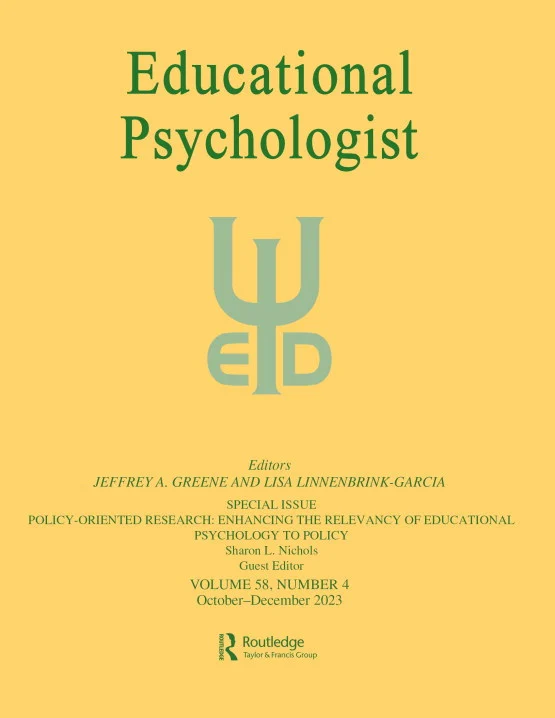协作学习的个人准备:系统回顾与综合
IF 14.3
1区 心理学
Q1 EDUCATION & EDUCATIONAL RESEARCH
引用次数: 11
摘要
协作为学习者提供了发展理解的机会,而不是他们单独完成的。为此,学习者需要在彼此的知识基础上得出新的结论。这需要在协作期间成功地检索、推理和相互引用。虽然个人准备被认为是促进这些过程的有效手段,但尚未系统地调查它是否,为什么以及在什么条件下这样做。我们回顾了关于协作学习、协作记忆和小组头脑风暴的研究,以提出关于个人准备协作的认知优势和劣势的假设,以及这些可能受到个人准备阶段设计的影响。随后,我们通过系统地回顾实验研究来检验这些假设。结果表明:(a)个体准备对检索、推理和引用的影响不同;(b)生成准备任务和支持学习者的认知群体意识可以增强协作个体准备的优势,减轻协作个体准备的劣势。本文章由计算机程序翻译,如有差异,请以英文原文为准。
Individual preparation for collaborative learning: Systematic review and synthesis
Abstract Collaboration provides learners with opportunities to develop an understanding beyond what they could achieve alone. To this end, learners need to build on each other’s knowledge to draw new conclusions. This requires successful retrieval, inferencing, and mutual referencing during collaboration. Although individual preparation is considered as effective means to foster these processes it has not been systematically investigated whether, why, and under what conditions it does so. We revisit research on collaborative learning, collaborative memory, and group brainstorming to develop hypotheses about the cognitive advantages and disadvantages of individual preparation for collaboration and how these might be influenced by the design of the individual preparation phase. Subsequently, we test these hypotheses by systematically reviewing experimental studies. Results indicate that (a) individual preparation affects retrieval, inferencing, and referencing differently, and (b) generative preparation tasks and supporting learners’ cognitive group awareness can enhance the advantages and mitigate the disadvantages of individual preparation for collaboration.
求助全文
通过发布文献求助,成功后即可免费获取论文全文。
去求助
来源期刊

Educational Psychologist
Multiple-
CiteScore
19.10
自引率
3.40%
发文量
16
期刊介绍:
The Educational Psychologist is a scholarly journal dedicated to exploring the psychology of learning and instruction. Articles in this journal encompass a diverse range of perspectives, from examining psychological mechanisms to exploring social and societal phenomena related to learning and instruction. The journal publishes theoretical and conceptual articles, as well as reviews and meta-analyses, that significantly contribute to theory or advance the methods used to explore educational psychology. Emphasizing innovation and advancing understanding, the journal does not publish articles solely reporting the methods and results of empirical studies; instead, all submissions, including reviews and meta-analyses, must offer clear implications for advancing theory. In addition to regular articles, the journal features special issues that delve into important themes in educational psychology, along with focal articles accompanied by peer commentary.
 求助内容:
求助内容: 应助结果提醒方式:
应助结果提醒方式:


